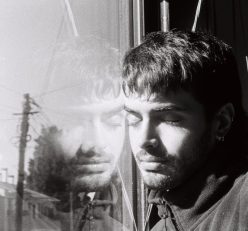“The Decandecy of the Human Being began when the homo sapiens developed the frontal lobe, which gave him the capability to plan the future.”
Rui Ramos
False Memories are actual events. Besides its unrealistic nature, they do occur to us. They are vivid memories of things that didn’t happen in a certain way, or sometimes, didn’t happen at all. How can we tell they are fake memories? When we get to a certain age, it is easy to differentiate between dreams, which I described on False Memory, Falso Recuerdo. When we are older, we are more conscious of what is real and what is not.
My oldest fake memory takes me back to 18 years ago when I was three years old. I used to go on vacation with my whole family, including my grandparents. In this memory, we are in Ria Formosa, Algarve. It’s afternoon, and the weather is sweltering. I imagine myself in the hall of our vacation house, and I run from my grandmother’s hands to the street. I stood in the middle of the road, and I could see my mother and grandfather walking down the street in the direction of the beach to go clam digging. The last thing I remember was the big sized orange sun symmetrically in the same position as my mother and grandfather.

This phenomenon is linked with the quality of suggestibility, which is when someone distorts the facts of a happening because of someone’s assumptions or even one’s emotions. The most evident example is when someone parks their car and forgets to lock it but has the absolute conviction and the memory of having closed it. Most of the times, the experiences are innocuous. However, false memories can be related to mental health issues such as post-traumatic and dissociative disorders, anxiety and stress overload, and sleep deprivation. These factors could guide a person to develop FMS – False Memory Syndrome – when false memories determine one’s conduct and relationships over an incoherent and distorted traumatic memory.
However, false memories can occur, as said previously, in a harmless way. Its occurrence has to do, undoubtedly, with ageing. The older we get, the less intense false memories we’re going to have. But, we’re always going to have simple false memories (such as believing that we started the dishwasher, etc.) recurrently. In my case, I’m linking false memories with dreams. Because they are fake, there’s a tendency to exaggerate every aspect of the memory, so I thought that the best way to describe FM’s is the surrealist way, by not being 100% factual and realistic. The false memory that I’ve selected for my piece occurred to me a couple of weeks ago, which relates to the numerous bus trips that I took between 2017 and 2020 between Porto, Madrid, and Barcelona. (To be discussed in the next blog post)
